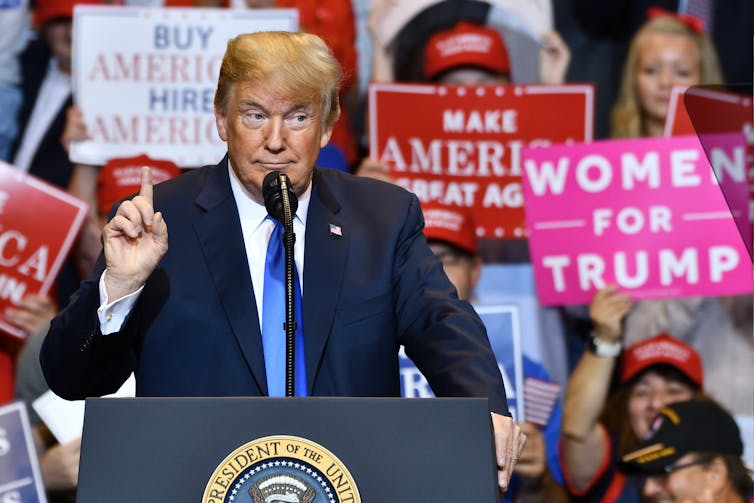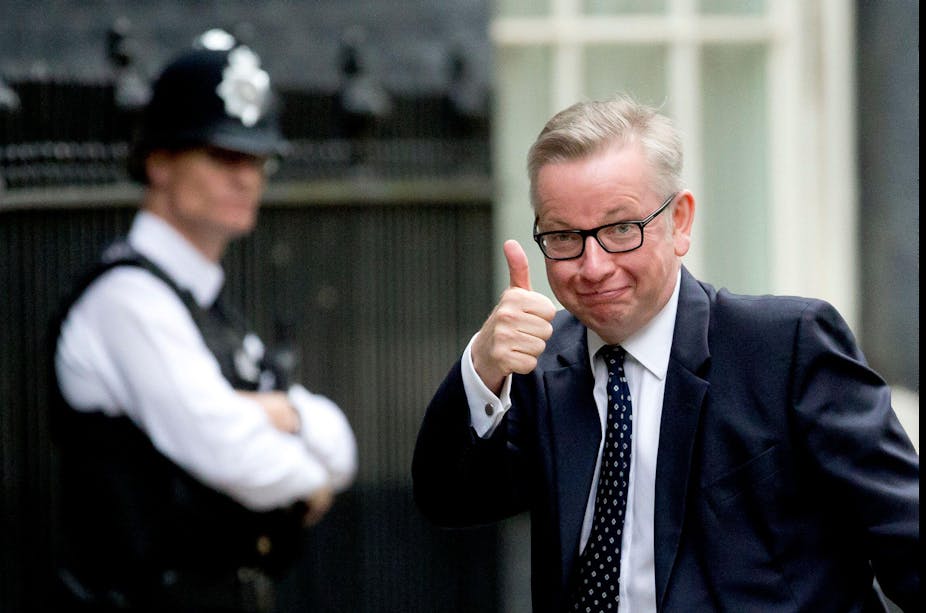When senior British politician Michael Gove announced in 2016 that the public had “had enough of experts” in the lead up to the Brexit vote, it highlighted a growing trend for questioning the authority and power of experts.
Only last month, the home secretary, Suella Braverman, took to the stage at the National Conservatism conference to rail against “experts and elites”. Such comments form part of a broader pattern where experts and their authority have faced significant challenges and threats from various economic, political, social and cultural sources.
An expert is conceptualised as someone with knowledge accrued in an accredited fashion, who then operates with a high degree of independence as a result of that knowledge and skill. Their power and influence has traditionally played an important role in society – but this authority is increasingly being questioned from many sides.
At the beginning of the pandemic, there was potential for a restoration of trust in expert authority. Politicians and international bodies talked about the importance of using expertise as the most viable path to navigate the COVID crisis. The public also sought more communication from scientific experts.
Even leaders such as Donald Trump and Boris Johnson, who had previously questioned the credibility of experts, appeared alongside medical professionals during press conferences to reassure the public.
But as the pandemic progressed, the authority of experts declined – with a few noteworthy exceptions such as New Zealand, South Korea and Senegal, which maintained their reliance on expertise to guide their decision-making processes.
My new book, co-authored with Michael Reed, identifies three broad explanations for this decline which we call delegitimation, demystification and decomposition.
Delegitimation
One way the authority of experts diminishes is when societal institutions and structures that have traditionally supported them – such as governments, media and business – themselves face criticism, in particular from populist political movements.
Technology-driven advancements such as social media have accelerated this trend. Social media democratises communication and provides global platforms for those who want to question established societal structures and institutions.
This in turn can lead to these organisations turning on their expert advisors, in addition to populist groups using alternative platforms to directly express their scepticism of experts.
There were examples of this trend during the pandemic. Figures such as Trump and then Brazilian president Jair Bolsonaro openly challenged and dismissed experts. Trump’s position changed as COVID was not quickly “solved”.

The spread of online disinformation and misinformation amplified the decline of expert authority. This led to the emergence of “culture wars” centred around virus control, including mask wearing.
2. Demystification
When people learn more about experts, in terms of who they are, what they do and who they serve, their power can again diminish. Individual experts are increasingly being watched and criticised as they become more closely associated with institutions such as government, corporations and banks. As a result, the lines are increasingly blurred between independent experts and organisational agendas.
The UK government used the country’s leading medical experts such as Chris Whitty and Patrick Vallance to support its political rhetoric during the pandemic. They stood beside the prime minister at press conferences, but were often scapegoated for government decisions that were more politically motivated than based on medical expertise.
Giving evidence at the COVID inquiry, Whitty warned that threats to independent experts could undermine responses to disasters in the future:
We should be very firm in saying that society very much appreciates the work of these people [experts and scientists], who put in considerable amounts of time … We, society, need to ensure scientists know their service is valued.
3. Decomposition
Finally, the authority of experts is also declining because there are now more occupations claiming expert status, including management occupations such as human resource management, marketing and project management. While this can democratise expertise, it can also challenge the primacy of the traditional accredited sectors such as law, medicine and accountancy.
The pandemic has highlighted the fragmentation of expert occupations. Many different groups were involved in tackling the crisis, with multiple ideas being debated in public. This led to people questioning expert authority, as they saw different experts giving contrasting advice on issues such as mask use, herd immunity and vaccine efficacy.
Rethinking how experts interact
So, how can experts maintain their authority and power in a world where people are increasingly sceptical of them? We argue the authority and power of expertise can be maintained by rethinking how experts interact with governments and the public.
Traditionally, experts have had autonomy to control their work, but this has led to a lack of trust. In future, experts will need to be more transparent and accountable to the public.
Instead of the traditional, top-down view of expert authority, we can imagine a more reflexive, dynamic and contested form of expert power that is open to other standards. This would broaden decision-making processes to wider audiences, and involve a continual public dialogue between experts and non-experts.
At the same time, experts will need to work more closely with governments and other bodies to ensure their expertise is taken into account.
Read more: Politicians love to appeal to common sense – but does it trump expertise?
None of this will be easy. It requires experts to engage with a broader range of people, some of whom they may have had little previous concern with. It may involve persuading others of their expertise, rather than assuming it as a given. And the power dynamics between experts and other people may alter, meaning there is greater potential for experts to be co-opted to other agendas.
Ultimately, whether we have really “had enough of experts” is questionable. But how these experts secure their power, and convince others of their authority, requires a rethink.

